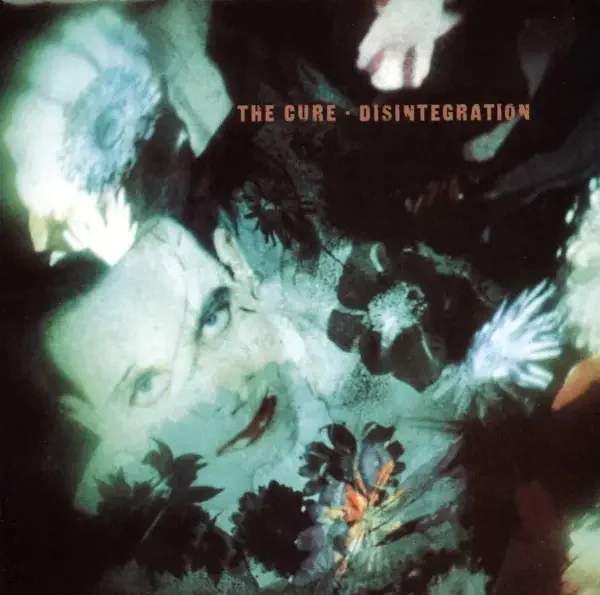The Cure
– Disintegration
By the time Disintegration arrived, The Cure had already slipped between genres like a shadow—sometimes pop, often goth, always their own strange thing. But here, Robert Smith stopped flirting with mood and fully married it. This is not an album that wants your attention. It wants your surrender. It doesn’t whisper, it coils around you like a thick fog at four in the morning, and if you stick around long enough, it starts telling you everything you didn’t want to admit.

Smith was thirty when he made Disintegration, and the birthday apparently hit him like a freight train driven by existential dread. Instead of pushing against it, he leaned in hard—drowning himself (and us) in sprawling arrangements, cavernous production, and lyrics soaked in sadness and wonder. Gone are the playful synth jabs of “Let’s Go to Bed” or the jangle-pop of “In Between Days.” What’s left is massive and slow-burning. These songs breathe, stretch, collapse, and rebuild in real time. Nothing here feels rushed. And for an album this heavy, that patience is what makes it so magnetic.
What really seals Disintegration as a high point—not just for The Cure but for moody rock at large—is its emotional clarity. Smith’s lyrics sound like diary entries scrawled in candlelight. He’s not hiding behind metaphor or irony. He’s saying exactly what he feels—sometimes with childlike awe, sometimes with world-weary grief. And when the music wraps around those words, it’s more than sound. It’s atmosphere. It’s a place. A rainy cathedral built out of reverb and heartbreak.
Choice Tracks
Pictures of You
A slow-motion heartbreak captured in shimmering guitars and echoing pain. It’s the sound of memory with the edges worn down, beautiful and blurry. Smith doesn’t just sing loss here—he relives it. And he pulls you in so you can relive yours too.
Lovesong
The closest this album gets to radio pop, and still it feels like a funeral march for a wedding. The simplicity is its strength—just a few words repeated, but they land like a promise whispered through a storm. This is devotion with dirt under its fingernails.
Fascination Street
Swagger, but make it bleak. The groove on this track is undeniable—like a nocturnal stroll through neon-lit decay. It’s sexy, slinky, and soaked in menace. One of the few moments where the band struts instead of sighs, and it works beautifully.
Plainsong
Opening with chimes that sound like the start of a dream—or the end of one—“Plainsong” sets the tone for everything that follows. It’s not a song as much as it is a mood: longing, frozen in amber, suspended between breath and oblivion.
Disintegration
The title track is chaos under control. Eight minutes of slow-burn unraveling. Smith’s voice trembles on the edge of collapse while the band builds a storm behind him. It’s cathartic and suffocating, the kind of track that doesn’t end so much as it fades into your bones.
Disintegration doesn’t try to be liked. It doesn’t chase trends. It just exists—heavy, melancholic, and utterly sincere. It’s music for when you’re too tired to cry but too alive to sleep. An album for the moments between the moments. And it remains one of the most brutally honest records ever made by a band that’s always understood the poetry of pain.

